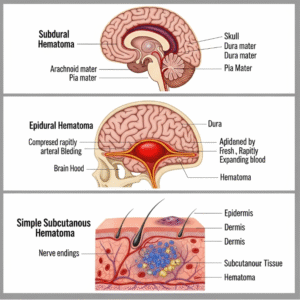Overview
Gilbert’s syndrome is a mild, inherited liver disorder that affects the processing of bilirubin, a substance produced during the breakdown of red blood cells. It is generally harmless and often goes unnoticed. In South Korea, Gilbert’s syndrome is recognized by physicians, and patients can manage the condition with lifestyle modifications and routine monitoring.
Symptoms
- Mild yellowing of the skin or eyes (jaundice), especially during stress, fasting, or illness
- Fatigue or mild weakness
- Nausea (occasionally)
- Abdominal discomfort (rare)
Many individuals remain asymptomatic and discover the condition during routine blood tests.
Causes
- Genetic mutation affecting the enzyme UGT1A1, which helps process bilirubin
- Reduced ability to conjugate bilirubin, leading to mild elevations in blood levels
Risk Factors
- Family history of Gilbert’s syndrome
- Male gender (more commonly diagnosed in males)
- Triggers such as fasting, dehydration, stress, illness, or strenuous exercise
Diagnosis
- Blood tests showing mildly elevated unconjugated bilirubin
- Liver function tests to rule out other liver conditions
- Genetic testing may be used to confirm the diagnosis
- Physical examination and patient history
Treatment Options in Korea
- Lifestyle Management:
- Avoid fasting or skipping meals
- Stay hydrated and maintain a balanced diet
- Manage stress and avoid excessive alcohol consumption
- Medical Monitoring:
- Routine liver function tests to ensure bilirubin levels remain stable
- No specific medication is typically required
- Patient Education:
- Korean healthcare providers emphasize understanding triggers and self-care
Prevention
- While Gilbert’s syndrome cannot be prevented due to its genetic nature, symptoms can be minimized by:
- Maintaining regular meals and nutrition
- Avoiding prolonged fasting or extreme diets
- Managing stress and fatigue
- Limiting alcohol intake













